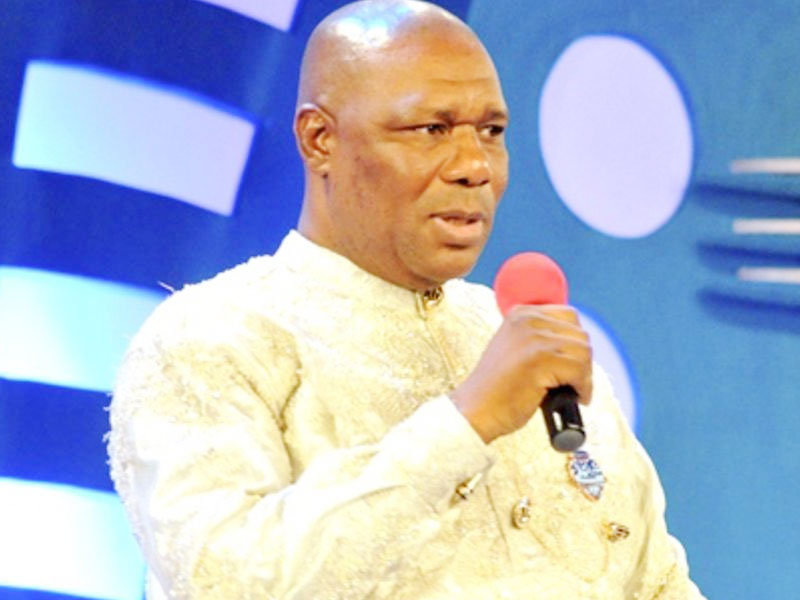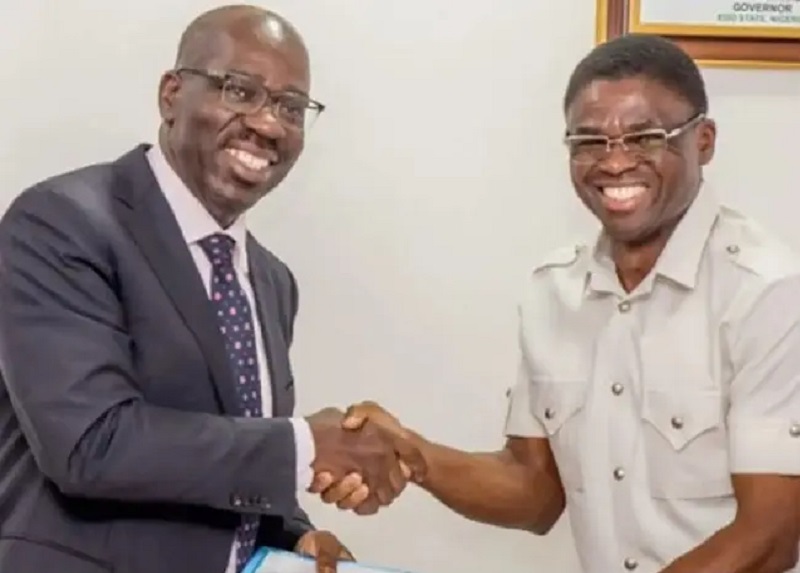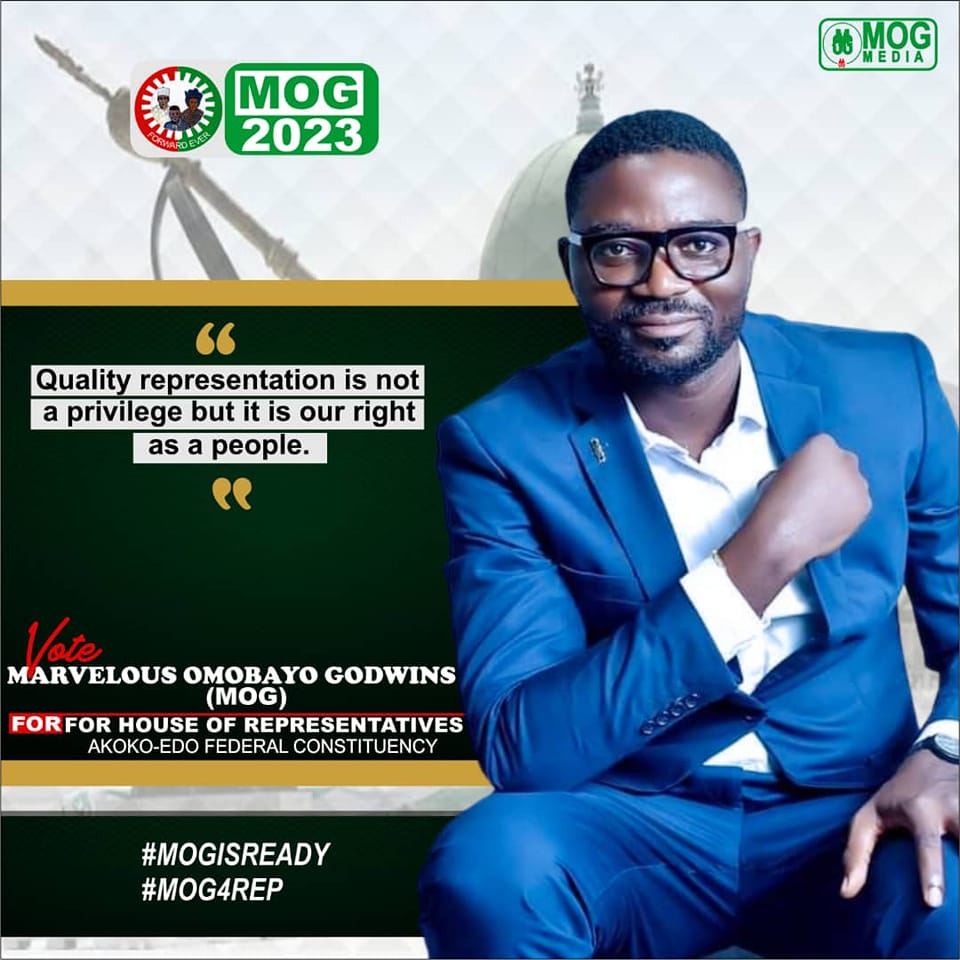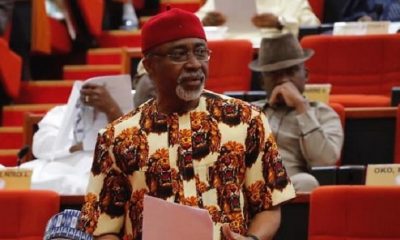Feature/OPED
Otuaro, A Deputy Governor With Peace and Development Mindset

By Jerome-Mario Chijioke Utomi
Aside from the painful fact that public offices in Nigeria erroneously view their positions as an opportunity for private gain/personal enrichment instead of an avenue for the public good, there exist in my view, two other constraints that explain why Nigeria’s democratic experience remained nascent, socioeconomically stunted and devoid of democracy dividends after over two decades of unbroken practice.
The first and very fundamental has to do with the fact that public office seekers/holders are usually laced with set vision/agendas which are at odds with the general inspirations and motivations of the citizens. And even when such visions are in consonance with that of the masses needs, there is a colossal failure of recognition that the feasibility of a vision/agenda is not enough as visions do not make civilization nor achieve growth and progress unless the visionary in question transforms his vision into a reality within a reasonable period.
The second centres on politicians’ non-understanding that democracy works where politicians have the culture of accommodation and tolerance which makes a minority accept a majority’s right to have its way until the next, and wait patiently and peacefully for its turn to become the government by pursuing more voters to support.
Yet, from the ashes of hopelessness and bye-gone years of national leadership failures, disappointment and ‘hemorrhage’ came two capable and creative leaders that cannot be associated with any of the shortcomings/leadership ills mentioned above.
These leaders are Governor Ifeanyi Okowa and Barrister Kingsley Burutu Otuaro, Governor and Deputy Governor of Delta State respectively.
Governor Okowa’s leadership vision, agenda, inspiration and motivations have always aligned with that of the larger Deltans. This fact needs not to be over-flogged or subjected to further debate as such relentless efforts by Mr Governor, particularly in the areas of infrastructures (road), a few years ago, earned him ‘road master’ as a title.
Likewise, evidence abounds that Otuaro, judging from his actions and inactions, is not just a Deputy Governor as he is laced with attributes of a true follower and a loyal ‘party man’.
His exemplary, inspiring and heroic support to the Peoples Democratic Party (PDP) and to Governor Okowa, bears eloquent testimony to this fact. His unalloyed loyalty to both ‘instituted and constituted authorities’ in the state significantly ushered a rancour-free administration in the state. The obvious irony is that some of these silent but giant contributions of the Deputy remain hazy as they are not properly documented or well covered by the media.
This piece considers as instructive the need to look at the Deputy Governor’s contribution in this dispensation as the government of and for the people is supposed to be generally opened to scrutiny by the people.
Without much labour, there are in fact countless examples of realistic appreciation of how the Deputy Governor has demonstrated/approached the job of public leadership with a wider range of strategic alternatives that prevented bureaucratic shortcomings from becoming a bottleneck to growth and development in the state.
Beginning with his knack for truth, simplicity, love of God and humanity, the Deputy Governor has in the past seven years of being in the saddle proved beyond reasonable doubt through his actions that simplicity is always more appealing than complexity, and faith is always more comforting than doubt.
Going by commentaries, there are people in both political parties (PDP and APC) that are presently ‘worried’ that there is something deeply unique about the Deputy Governor, his relationship to reason, his love for peace, his unalloyed and ‘blind’ obedience to his boss/principal and undying love for, and development of the coastal communities of the state.
Take as an illustration, very recently, during the Delta State PDP mega rally held at the Cenotaph, Asaba, he said something remarkably striking and alien to the nation’s public leadership corridor.
“The present administration will not fail the people of the state, Delta State is a praying state, God’s state, and the government believes in the magnificence of God. We will not tell our people half-truth, we will tell you the whole truth because from the onset of this government, God has been our guide and we will not take our eyes off Him.
“We believe in God, we believe that Delta State is for God, we believe that God enthroned kings and we believe that going forward, God will enthrone the best leader.
“As a government, we will not fail you, we are determined to ensure that we finish strong and enthrone a better and secured Delta for future generations,” he said.
Away from simplicity, truth and love for God, to the area of peace, the state Deputy Governor has reputedly become a peace advocate. He is known for preaching politics without rancour.
Some years ago, Otuaro, going by reports, was used to save the nation from serious economic debacles occasioned by the threat issued by the Niger Delta Avengers (NDA). He was at the forefront of the campaign that got the Avengers to see reasons as to why they should not engage in the wanton destruction of oil facilities or plunder the nation’s economy.
In recognition of his effort in this direction, a recent report among others noted that he (the Deputy Governor) is a humane administrator and amazingly simple-minded individual.
The report further noted that nobody ever expected he would venture into the dicey and precarious nature of Nigerian politics. Barr Kingsley Otuaro, however, saw the need to boost the socio-economic prowess with the political interest of the common man as well as bridge the lacuna of the rural-urban dichotomy of his people through the provisions of social infrastructure’.
Beyond the state level, the Barrister turned public office holder cum peace ambassador has succeeded in enshrining the needed inter-states security cooperation, especially among adjoining Niger Delta coastal states.
To further illustrate his peacebuilding and conflict management competence, Deacon Kingsley Burutu Otuaro, it was reported, demonstrated an unequalled sagacity on behalf of Delta State Government, spearheading the rescue of six students of Igbonla Model College, Epe, Lagos State, from kidnappers. That was a few years ago.
To take another example of how Otuaro’s obedience and his friction-free relationship with the Governor is building peace and promoting development in the state, this piece will cast a glance at the tremendous development recently recorded in the coastal areas of the state and Gbaramatu kingdom in particular where he (Otuaro) hails from.
If a visit is made to the coastal areas of Delta State and analysis/report of such visit is placed side by side with documented accounts of deprivation, degradation and abandonment that formerly characterized the region, it will, however, reveal something fundamentally new and different about the crisis in the region; justify the belief that creative concepts of leaders can bring both disruptive and constructive aspect; and authenticate the conviction that a leader’s action and inactions is laced with the capacity to shatter set patterns of thinking, threaten the status quo, or at the very least stir up people’s anxieties.
The ongoing development of the region cannot in any way be attributed to speculation but a decision process built on right judgment and supported by rational inferences basically different from mathematical probability.
It has also shown that strategic success cannot be reduced to a formula, nor can one become a strategic thinker by reading books, but through constant demonstration of competence, connection, character and unity between the Governor and his Deputy.
Today, as a result of the present peace and unity that exists between the duo, the age-long excuse by previous administrations that the coastal region cannot be developed because the terrain is marshy, a feature that renders construction difficult if not impossible can no longer be sustained.
As recently argued by a coastal dweller, Okowa/Otuaro being God sent, used their politics of peace and development to send such an excuse to the dustbin of history. Even though the roads are yet to be connected to major cities in the state, they noted that coastal areas are now blessed with an appreciable number of pedestrian roads, a feat that qualifies the Governor and his deputy as the first to give a sense of belonging to the people of the region.
Certainly, the Governor Ifeanyi Okowa/Oturo administration has scored some good points in certain areas of life-particularly infrastructure.
This feeling came to mind following a recent media report that the Delta State Government has approved an upward review of contract cost of Ayakoromo bridge project from N6 billion to N10.5 billion, elicited two sets of reactions among Deltans, particularly those in the riverine communities of Burutu, Patani and Bomadi local government areas of the states.
This decision by the state government to complete the bridge looks good both in practical and pragmatic terms. The transport sector has a huge role in connecting populations to where the work is. Also, Infrastructure investments help stem economic losses arising from problems such as power outages or traffic congestion.
The World Bank estimates that in Sub-Saharan Africa, closing the infrastructure quantity and quality gap relative to the world’s best performers could raise gross domestic product (GDP) growth per head by 2.6 per cent annually.
Again, like the Bomadi bridge, which was executed by James Onanefe Ibori’s administration, connecting three local government areas, (Burutu, Ughele and Patani), likewise, the Ayakoromo bridge, going by commentaries, when completed, promises to promote the socioeconomic lives and wellbeing of Deltans living in over in four local governments of the state.
Take as another illustration, Bobougbene community and its environs are reputed for the production of palm oil in commercial quantity and supply to Warri metropolis and Okwuagbe markets in Ugheli South. The bridge when completed will provide easy access to these markets. Even more, it will open up the majority of communities that are yet to have access to the ‘uplands’.
This massive infrastructural development in the state, I insist, is one of the fruits of effective, peaceful and productive collaboration between Governor Okowa and his Deputy.
Jerome-Mario Utomi is the Programme Coordinator (Media and Public Policy), Social and Economic Justice Advocacy (SEJA), a Lagos-based Non-Governmental Organization (NGO). He can be reached via Je*********@***oo.com/08032725374
Feature/OPED
How Christians Can Stay Connected to Their Faith During This Lenten Period

It’s that time of year again, when Christians come together in fasting and prayer. Whether observing the traditional Lent or entering a focused period of reflection, it’s a chance to connect more deeply with God, and for many, this season even sets the tone for the year ahead.
Of course, staying focused isn’t always easy. Life has a way of throwing distractions your way, a nosy neighbour, a bus driver who refuses to give you your change, or that colleague testing your patience. Keeping your peace takes intention, and turning off the noise and staying on course requires an act of devotion.
Fasting is meant to create a quiet space in your life, but if that space isn’t filled with something meaningful, old habits can creep back in. Sustaining that focus requires reinforcement beyond physical gatherings, and one way to do so is to tune in to faith-based programming to remain spiritually aligned throughout the period and beyond.
On GOtv, Christian channels such as Dove TV channel 113, Faith TV and Trace Gospel provide sermons, worship experiences and teachings that echo what is being practised in churches across the country.
From intentional conversations on Faith TV on GOtv channel 110 to true worship on Trace Gospel on channel 47, these channels provide nurturing content rooted in biblical teaching, worship, and life application. Viewers are met with inspiring sermons, reflections on scripture, and worship sessions that help form a rhythm of devotion. During fasting periods, this kind of consistent spiritual input becomes a source of encouragement, helping believers stay anchored in prayer and mindful of God’s presence throughout their daily routines.
To catch all these channels and more, simply subscribe, upgrade, or reconnect by downloading the MyGOtv App or dialling *288#. You can also stream anytime with the GOtv Stream App.
Plus, with the We Got You offer, available until 28th February 2026, subscribers automatically upgrade to the next package at no extra cost, giving you access to more channels this season.
Feature/OPED
Turning Stolen Hardware into a Data Dead-End

By Apu Pavithran
In Johannesburg, the “city of gold,” the most valuable resource being mined isn’t underground; it’s in the pockets of your employees.
With an average of 189 cellphones reported stolen daily in South Africa, Gauteng province has become the hub of a growing enterprise risk landscape.
For IT leaders across the continent, a “lost phone” is rarely a matter of a misplaced device. It is frequently the result of a coordinated “snatch and grab,” where the hardware is incidental, and corporate data is the true objective.
Industry reports show that 68% of company-owned device breaches stem from lost or stolen hardware. In this context, treating mobile security as a “nice-to-have” insurance policy is no longer an option. It must function as an operational control designed for inevitability.
In the City of Gold, Data Is the Real Prize
When a fintech agent’s device vanishes, the $300 handset cost is a rounding error. The real exposure lies in what that device represents: authorised access to enterprise systems, financial tools, customer data, and internal networks.
Attackers typically pursue one of two outcomes: a quick wipe for resale on the secondary market or, far more dangerously, a deep dive into corporate apps to extract liquid assets or sellable data.
Clearly, many organisations operate under the dangerous assumption that default manufacturer security is sufficient. In reality, a PIN or fingerprint is a flimsy barrier if a device is misconfigured or snatched while unlocked. Once an attacker gets in, they aren’t just holding a phone; they are holding the keys to copy data, reset passwords, or even access admin tools.
The risk intensifies when identity-verification systems are tied directly to the compromised device. Multi-Factor Authentication (MFA), widely regarded as a gold standard, can become a vulnerability if the authentication factor and the primary access point reside on the same compromised device. In such cases, the attacker may not just have a phone; they now have a valid digital identity.
The exposure does not end at authentication. It expands with the structure of the modern workforce.
65% of African SMEs and startups now operate distributed teams. The Bring Your Own Device (BYOD) culture has left many IT departments blind to the health of their fleet, as personal devices may be outdated or jailbroken without any easy way to know.
Device theft is not new in Africa. High-profile incidents, including stolen government hardware, reinforce a simple truth: physical loss is inevitable. The real measure of resilience is whether that loss has any residual value. You may not stop the theft. But you can eliminate the reward.
Theft Is Inevitable, Exposure is Not
If theft cannot always be prevented, systems must be designed so that stolen devices yield nothing of consequence. This shift requires structured, automated controls designed to contain risk the moment loss occurs.
Develop an Incident Response Plan (IRP)
The moment a device is reported missing, predefined actions should trigger automatically: access revocation, session termination, credential reset and remote lock or wipe.
However, such technical playbooks are only as fast as the people who trigger them. Employees must be trained as the first line of defence —not just in the use of strong PINs and biometrics, but in the critical culture of immediate reporting. In high-risk environments, containment windows are measured in minutes, not hours.
Audit and Monitor the Fleet Regularly
Control begins with visibility. Without a continuous, comprehensive audit, IT teams are left responding to incidents after damage has occurred.
Opting for tools like Endpoint Detection and Response (EDR) allows IT teams to spot subtle, suspicious activities or unusual access attempts that signal a compromised device.
Review Device Security Policies
Security controls must be enforced at the management layer, not left to user discretion. Encryption, patch updates and screen-lock policies should be mandatory across corporate devices.
In BYOD environments, ownership-aware policies are essential. Corporate data must remain governed by enterprise controls regardless of device ownership.
Decouple Identity from the Device
Legacy SMS-based authentication models introduce avoidable risk when the authentication channel resides on the compromised handset. Stronger identity models, including hardware tokens, reduce this dependency.
At the same time, native anti-theft features introduced by Apple and Google, such as behavioural theft detection and enforced security delays, add valuable defensive layers. These controls should be embedded into enterprise baselines rather than treated as optional enhancements.
When Stolen Hardware Becomes Worthless
With POPIA penalties now reaching up to R10 million or a decade of imprisonment for serious data loss offences, the Information Regulator has made one thing clear: liability is strict, and the financial fallout is absolute. Yet, a PwC survey reveals a staggering gap: only 28% of South African organisations are prioritising proactive security over reactive firefighting.
At the same time, the continent is battling a massive cybersecurity skills shortage. Enterprises simply do not have the boots on the ground to manually patch every vulnerability or chase every “lost” terminal. In this climate, the only viable path is to automate the defence of your data.
Modern mobile device management (MDM) platforms provide this automation layer.
In field operations, “where” is the first indicator of “what.” If a tablet assigned to a Cape Town district suddenly pings on a highway heading out of the city, you don’t need a notification an hour later—you need an immediate response. An effective MDM system offers geofencing capabilities, automatically triggering a remote lock when devices breach predefined zones.
On Supervised iOS and Android Enterprise devices, enforced Factory Reset Protection (FRP) ensures that even after a forced wipe, the device cannot be reactivated without organisational credentials, eliminating resale value.
For BYOD environments, we cannot ignore the fear that corporate oversight equates to a digital invasion of personal lives. However, containerization through managed Work Profiles creates a secure boundary between corporate and personal data. This enables selective wipe capabilities, removing enterprise assets without intruding on personal privacy.
When integrated with identity providers, device posture and user identity can be evaluated together through multi-condition compliance rules. Access can then be granted, restricted, or revoked based on real-time risk signals.
Platforms built around unified endpoint management and identity integration enable this model of control. At Hexnode, this convergence of device governance and identity enforcement forms the foundation of a proactive security mandate. It transforms mobile fleets from distributed risk points into centrally controlled assets.
In high-risk environments, security cannot be passive. The goal is not recovery. It is irrelevant, ensuring that once a device leaves authorised hands, it holds no data, no identity leverage, and no operational value.
Apu Pavithran is the CEO and founder of Hexnode
Feature/OPED
Daniel Koussou Highlights Self-Awareness as Key to Business Success

By Adedapo Adesanya
At a time when young entrepreneurs are reshaping global industries—including the traditionally capital-intensive oil and gas sector—Ambassador Daniel Koussou has emerged as a compelling example of how resilience, strategic foresight, and disciplined execution can transform modest beginnings into a thriving business conglomerate.
Koussou, who is the chairman of the Nigeria Chapter of the International Human Rights Observatory-Africa (IHRO-Africa), currently heads the Committee on Economic Diplomacy, Trade and Investment for the forum’s Nigeria chapter. He is one of the young entrepreneurs instilling a culture of nation-building and leadership dynamics that are key to the nation’s transformation in the new millennium.
The entrepreneurial landscape in Nigeria is rapidly evolving, with leaders like Koussou paving the way for innovation and growth, and changing the face of the global business climate. Being enthusiastic about entrepreneurship, Koussou notes that “the best thing that can happen to any entrepreneur is to start chasing their dreams as early as possible. One of the first things I realised in life is self-awareness. If you want to connect the dots, you must start early and know your purpose.”
Successful business people are passionate about their business and stubbornly driven to succeed. Koussou stresses the importance of persistence and resilience. He says he realised early that he had a ‘calling’ and pursued it with all his strength, “working long weekends and into the night, giving up all but necessary expenditures, and pressing on through severe setbacks.”
However, he clarifies that what accounted for an early success is not just tenacity but also the ability to adapt, to recognise and respond to rapidly changing markets and unexpected events.
Ambassador Koussou is the CEO of Dau-O GIK Oil and Gas Limited, an indigenous oil and natural gas company with a global outlook, delivering solutions that power industries, strengthen communities, and fuel progress. The firm’s operations span exploration, production, refining, and distribution.
Recognising the value of strategic alliances, Koussou partners with business like-minds, a move that significantly bolsters Dau-O GIK’s credibility and capacity in the oil industry. This partnership exemplifies the importance of building strong networks and collaborations.
The astute businessman, who was recently nominated by the African Union’s Agenda 2063 as AU Special Envoy on Oil and Gas (Continental), admonishes young entrepreneurs to be disciplined and firm in their decision-making, a quality he attributed to his success as a player in the oil and gas sector. By embracing opportunities, building strong partnerships, and maintaining a commitment to excellence, Koussou has not only achieved personal success but has also set a benchmark for future generations of African entrepreneurs.
His journey serves as a powerful reminder that with determination and vision, success is within reach.
-

 Feature/OPED6 years ago
Feature/OPED6 years agoDavos was Different this year
-
Travel/Tourism10 years ago
Lagos Seals Western Lodge Hotel In Ikorodu
-

 Showbiz3 years ago
Showbiz3 years agoEstranged Lover Releases Videos of Empress Njamah Bathing
-

 Banking8 years ago
Banking8 years agoSort Codes of GTBank Branches in Nigeria
-

 Economy3 years ago
Economy3 years agoSubsidy Removal: CNG at N130 Per Litre Cheaper Than Petrol—IPMAN
-

 Banking3 years ago
Banking3 years agoSort Codes of UBA Branches in Nigeria
-

 Banking3 years ago
Banking3 years agoFirst Bank Announces Planned Downtime
-

 Sports3 years ago
Sports3 years agoHighest Paid Nigerian Footballer – How Much Do Nigerian Footballers Earn
















